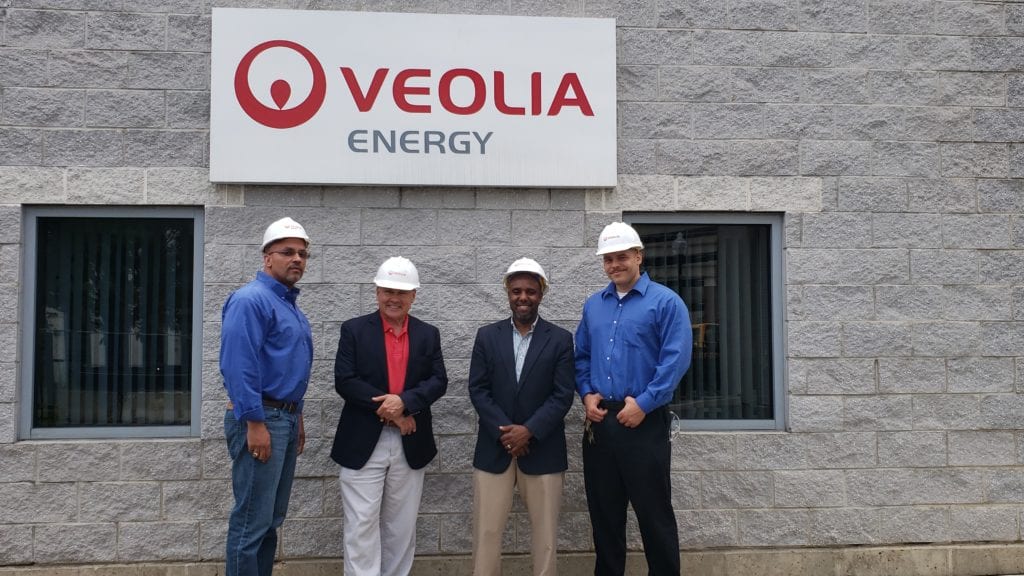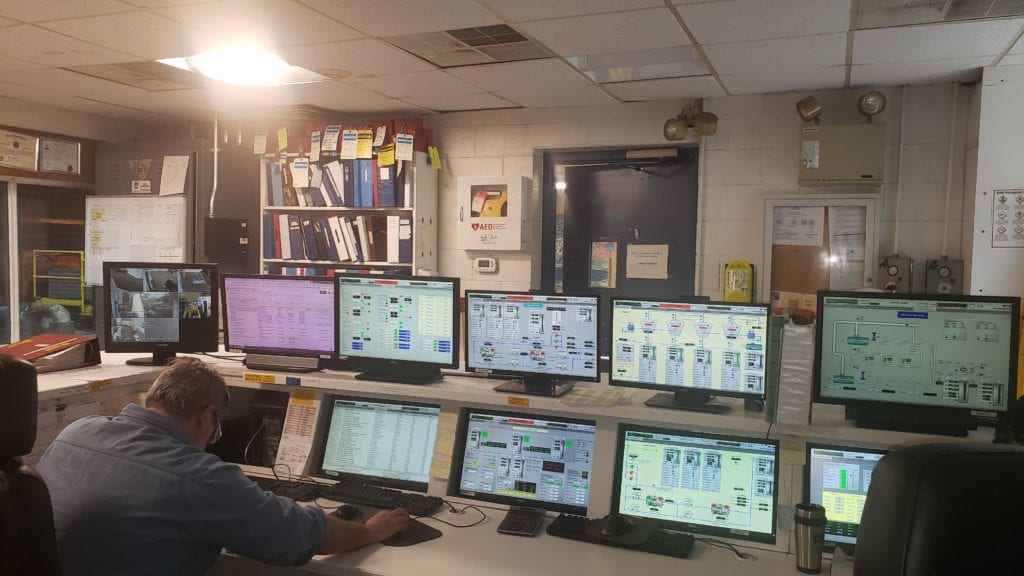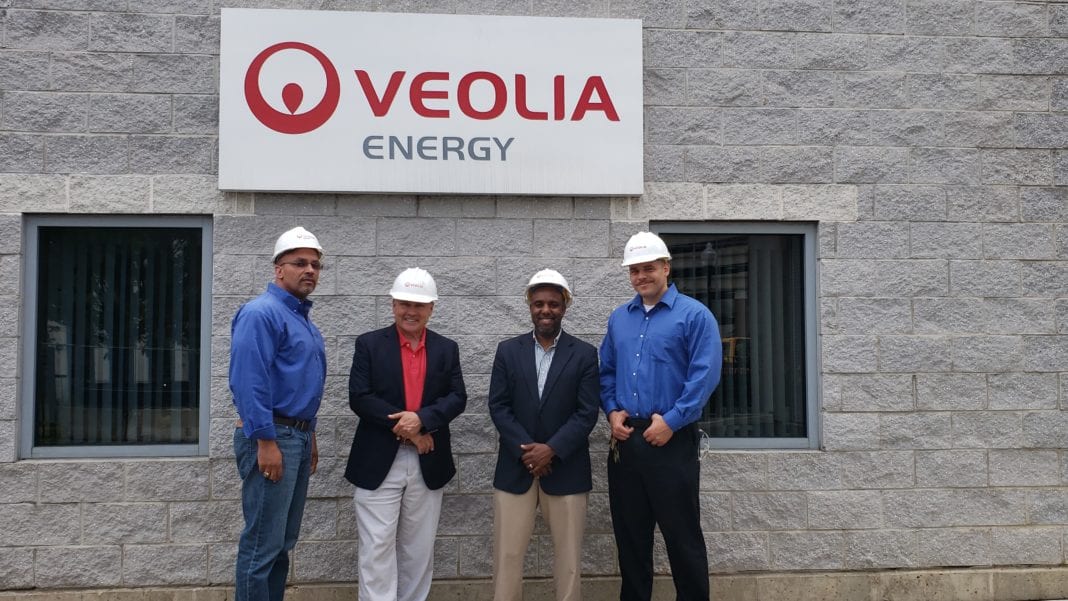During a recent visit to Veolia’s Trenton-based energy plant, we had a chance to learn more about a truly powerful asset in Trenton’s energy ecosystem. General Manager Perry Alburg and Plant Manager Hector DeJesus provided a brief overview and tour of the energy company earlier this month.

In Trenton, Veolia’s district energy network provides centrally-produced hot water and chilled water to approximately 35 customers in the central business district from one cogeneration facility and multiple chilled water facilities.
Located beneath the streets and bridges of Trenton is a network of district energy hot-water and chilled-water pipes delivering environmentally friendly thermal energy to some of New Jersey’s most critical buildings. Combining an underground network with the latest energy efficient technology enables Veolia to help reduce the region’s greenhouse gas emissions and minimize environmental impact. Veolia’s district energy networks serve the critical heating and cooling needs of 30 buildings in Trenton.

As the seat of government for New Jersey, downtown Trenton is home to critical facilities and infrastructure that provide essential services during an emergency. These facilities require reliable electrical and thermal utilities to avoid the loss of critical government functions and to respond adequately to a natural or man-made disaster.
“Having access to a district energy system is a tremendous benefit,” said Alburg. “Avoiding the need to purchase a boiler or chiller not only reduces upfront capital expenditures, but it also frees up square footage to achieve maximum utility while offsetting maintenance costs.”
Veolia group is the global leader in optimized resource management. With nearly 169,000 employees worldwide, the Group designs and provides water, waste and energy management solutions that contribute to the sustainable development of communities and industries. Through its three complementary business activities, Veolia helps to develop access to resources, preserve available resources and to replenish them.
In 2017, the Veolia group supplied 96 million people with drinking water and 62 million people with wastewater service, produced nearly 55 million megawatt hours of energy and converted 47 million metric tons of waste into new materials and energy.





